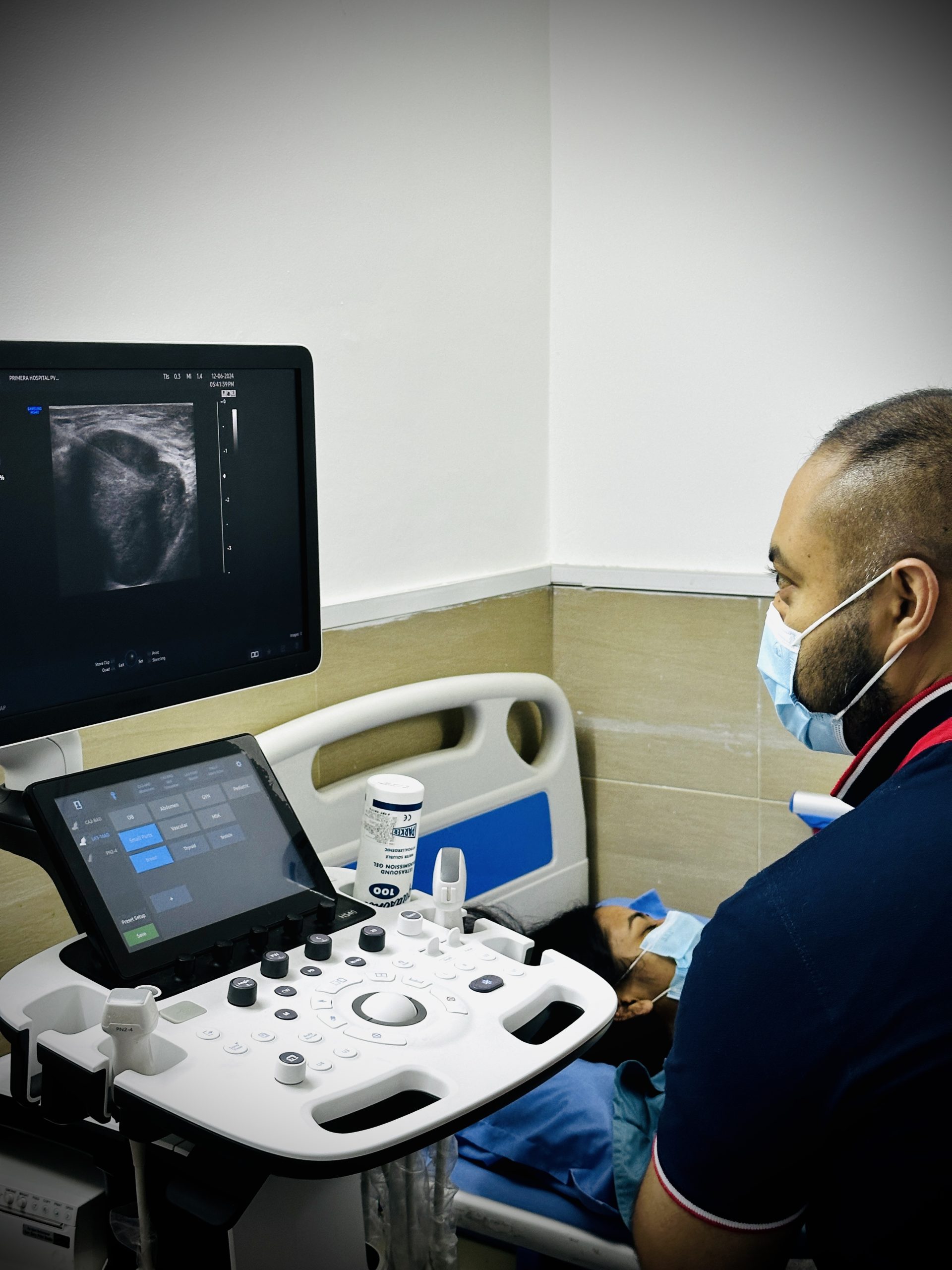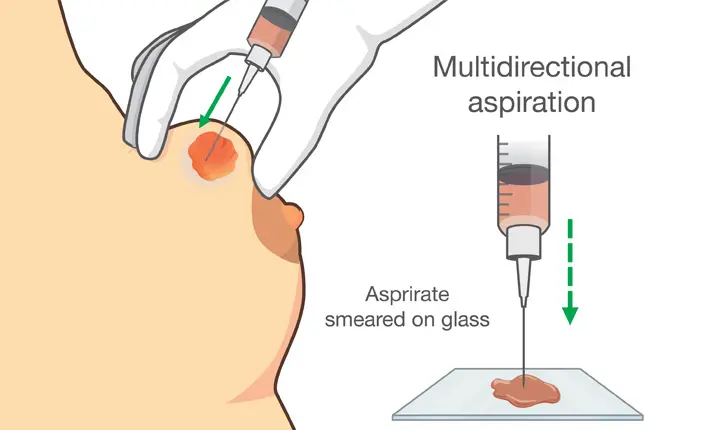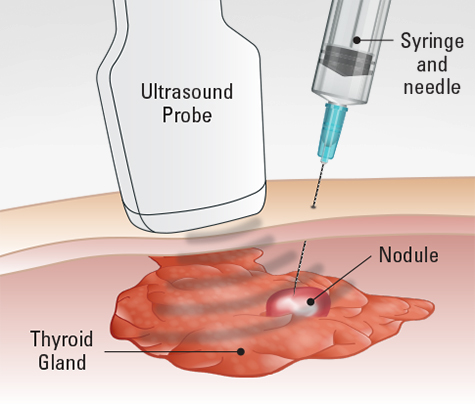
FNAC

Fine-needle aspiration cytology (FNAC) is a diagnostic procedure commonly used to obtain a sample of cells from a suspicious lump or mass in the breast or thyroid for further analysis. This minimally invasive technique involves using a thin, hollow needle to extract cells for examination under a microscope. Here’s an overview of FNAC for both the breast and thyroid:
Fine-Needle Aspiration Cytology (FNAC) of the Breast:
Preparation:
- Before the procedure, imaging studies such as mammography or ultrasound may be performed to precisely locate the suspicious area.
- Local anesthesia is often used to numb the area around the lump, reducing discomfort during the procedure.
Biopsy Procedure:
- A thin needle is inserted into the breast lump, and suction is applied to aspirate (withdraw) a small sample of cells.
- Multiple samples may be taken from different areas of the lump to ensure a representative sample.
Post-Procedure:
- After the procedure, you may experience mild bruising or swelling at the biopsy site. This typically resolves on its own.
Results:
- The collected cells are examined by a pathologist under a microscope to determine whether they are cancerous (malignant) or non-cancerous (benign).
- Results are usually available within a few days.
Fine-Needle Aspiration Cytology (FNAC) of the Thyroid:
Preparation:
- Imaging studies, such as ultrasound, may be used to guide the needle precisely to the suspicious area in the thyroid.
- Local anesthesia may be used to numb the skin over the thyroid nodule.
Biopsy Procedure:
- A thin needle is inserted through the skin and into the thyroid nodule to aspirate a small sample of thyroid cells.
- Multiple passes may be made to ensure an adequate sample.
Post-Procedure:
- After the procedure, you may experience mild discomfort or bruising at the biopsy site.
Results:
- The collected thyroid cells are examined by a pathologist to determine whether the nodule is benign or malignant.
- Results are usually available within a few days.
Considerations:
- FNAC is a quick and generally well-tolerated procedure.
- It helps guide further management decisions, such as whether surgery or additional testing is necessary.
- The accuracy of FNAC depends on the skill of the person performing the procedure and the interpretation by the pathologist.
If your Doctor recommends FNAC, it’s essential to discuss any concerns you may have, understand the procedure, and be aware of potential risks and benefits.

